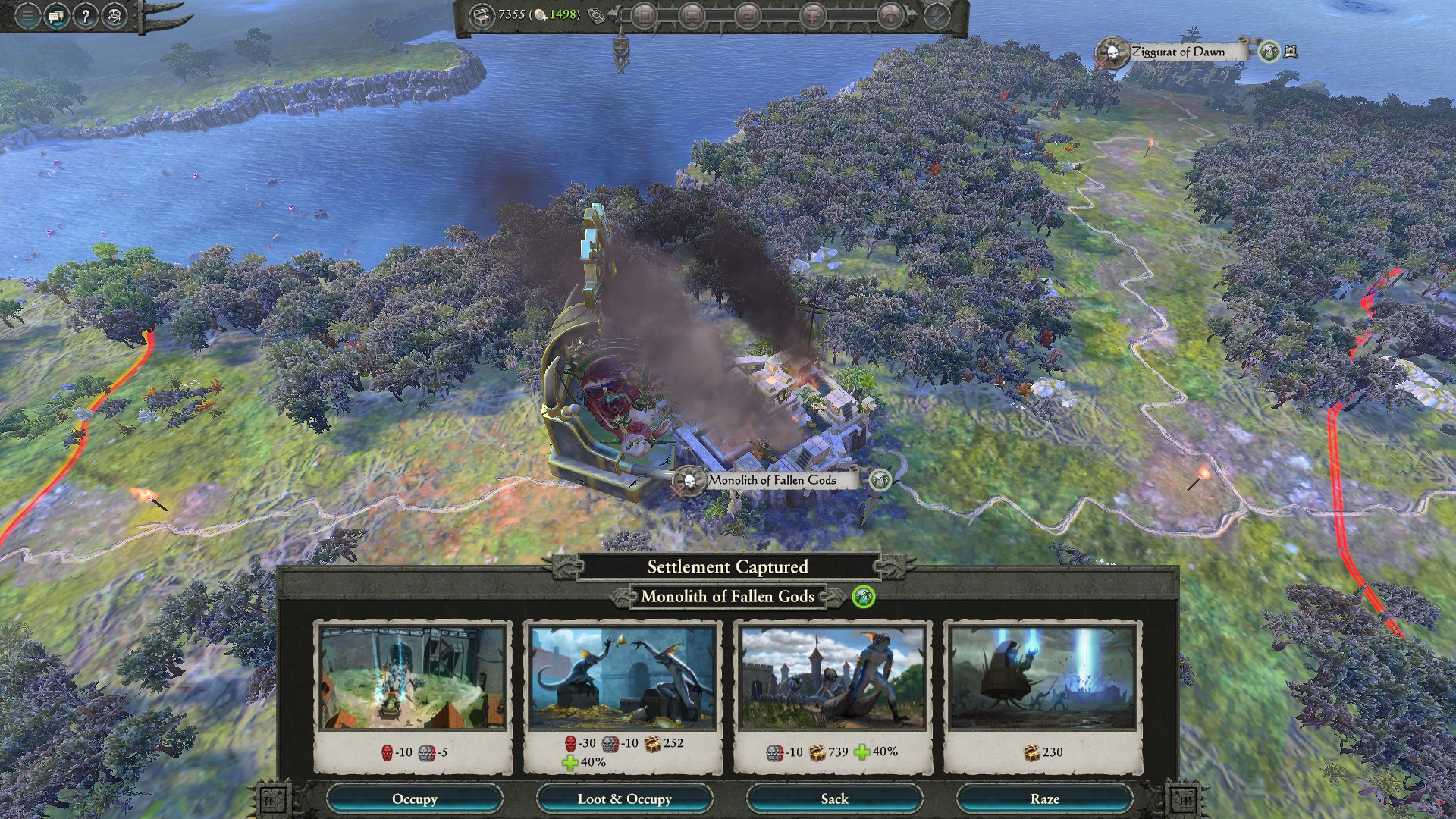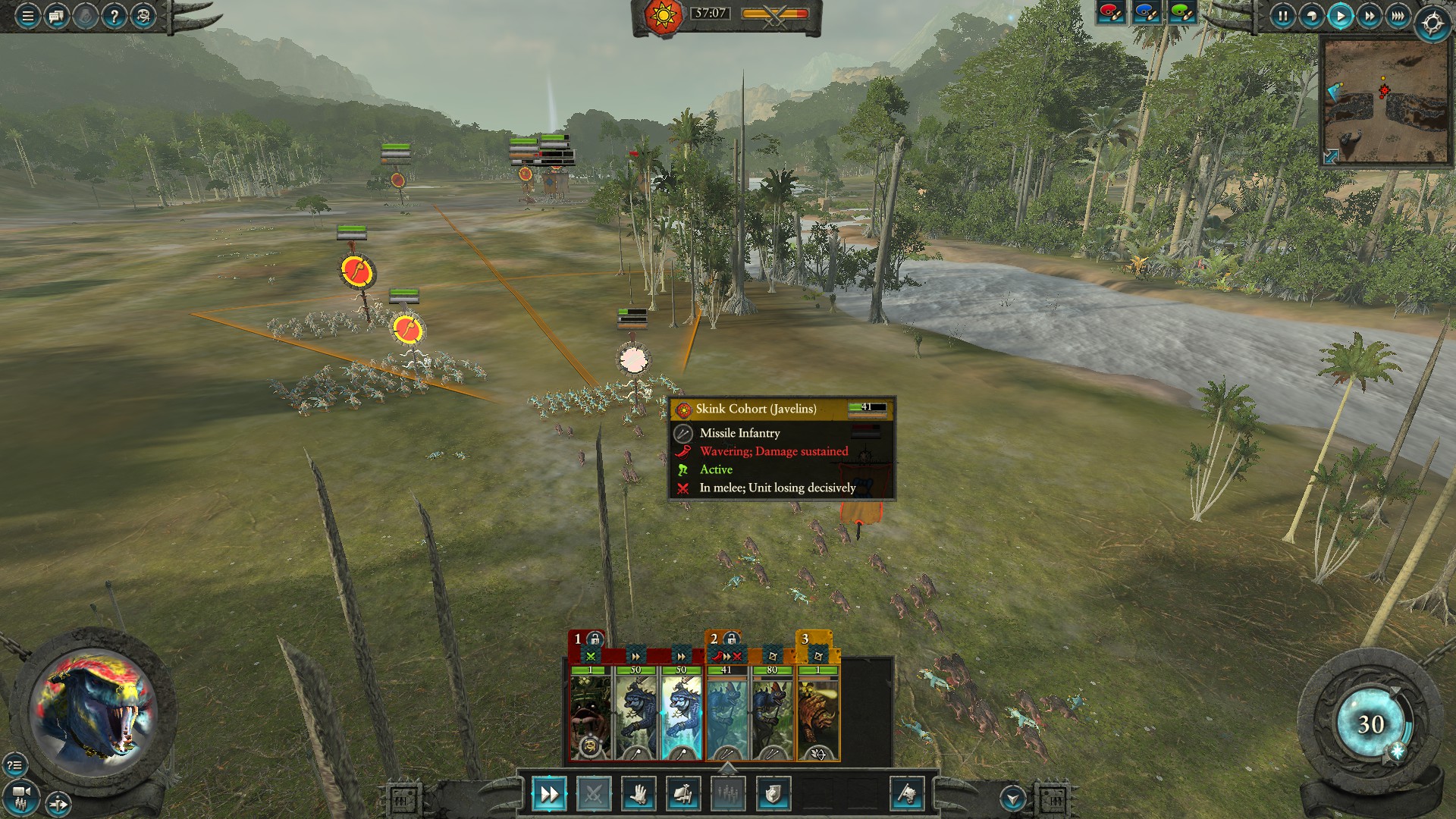
The most confusing element to the campaign co-op in Total War: WARHAMMER 2 is that there is absolutely no sharing of resources whatsoever. You cannot give units to your buddy if they really need them, nor can you give them gold. There are a limited number of cities on the map and you can’t both occupy the same place. Finally, despite the fact that you’re both attempting to take over the vortex for your faction, your progress towards that ultimate goal is separate. You both acquire the materials necessary to initiate the rituals individually and you cannot share. In a weird way, then, all of this kind of puts you and your friend a little at odds as there are only so many resources to go around. You either have to pick one person to focus on doing the rituals while the other deals with taking out other factions, or you have to work out who gets what.
After playing through some of the campaign on my own, it’s clear that the co-op is ultimately limited by the underlying mechanics/systems of the game itself which has limited options for how you can ally yourself with another faction and none of those allow for the kind of features described here. Still, I would think that the developers would make at least some concessions for co-op players.
Of course, expanding your empire and performing the necessary rituals will put you in conflict with the other factions, and when you get into battle, Total War: WARHAMMER 2 shows off its tabletop roots… kind of. Prior to two armies duking it out, each side has the opportunity to first determine where on the battlefield that can position their units. Some of your troops may have a special “Vanguard” ability allowing them to be deployed outside the normal deployment zone (represented by a yellow rectangle on the battle map), thus providing you with the opportunity to plan and set up traps for the enemy once things get underway.

Beyond beginning-of-battle positioning, there is a lot of strategy involved in the battles themselves. Deciding when to send units into the fray and when to pull them back, which enemies to prioritize, when to use units' and leaders' special abilities - these are all things you'll have to be thinking about in the middle of battle. For instance, cavalry units are great for charging into the flanks and rears of enemy forces that are engaged by infantry units from the front, but they don't always hold up well in prolonged engagements. Thus, once they make their spectacular charge, you’ll have to take control of them and try to move them out of the fray so they can regroup and charge again. That wouldn’t be too bad if that was the only thing demanding your attention during a battle, but you’ve also got to manage your infantry, ranged, artillery, and specialty units as well. This micromanagement of your forces is a bit exhausting at times and I would often use the "auto-resolve" option for battles rather than control the action myself.
I know some of this comes down to a matter of individual preference. Some folks like the tense nature of having to command/react to things in real-time, while other prefer to take their time and scrutinize their options without feeling pressured by time. One of the things I really loved about the tabletop version of Warhammer was how, in some ways, it played out like a chess match. You’d take your turn, try to figure out what your opponent would do next, move your units, and engage others accordingly. While you can pause the action in Total War: WARHAMMER 2 whenever you want to select units and issue orders, you eventually have to unpause so things can play out once more. The good news is that when you’re playing the campaign with a buddy, you can share the responsibilities of command.